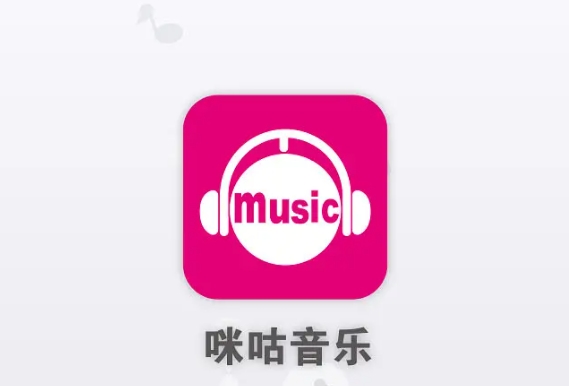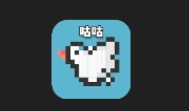最新下载
热门教程
- 1
- 2
- 3
- 4
- 5
- 6
- 7
- 8
- 9
- 10
Swift tableView只有1个Label标签单元格高度自适应
时间:2022-06-25 23:34:20 编辑:袖梨 来源:一聚教程网
1,单元格高度自适应
有时我们使用表格(UITableView)显示列表数据。不希望每个单元格的高度是固定的,最好能根据单元格中的内容来自适应高度。在过去,我们如果想在表格视图中展示可变高度的动态内容,需要手动计算行高,比较麻烦。
自 iOS8 起,UITableView 加入了一项新功能:Self Sizing Cells。设置后表格会自动计算单元格的尺寸并渲染,大大节省了开发时间。
2,使用Self Sizing Cells的条件
(1)单元格 Cell 需要使用 Auto Layout 约束。
(2)需要指定 tableView 的 estimatedRowHeight 属性默认值。
(2)将 tableView 的 rowHeight 属性设置为 UITableViewAutomaticDimension。
3,样例效果图
下面先通过一个最简单的样例演示如何使用 Self Sizing Cells。单元格就是最原始的 UITableViewCell,即里面只有一个文
4,样例代码
这里注意我们要将单元格 label 的 numberOfLines 属性设为0(默认是1)。这样就可以允许标签自动增长。
import UIKit
class ViewController: UIViewController , UITableViewDelegate, UITableViewDataSource {
var catalog = [[String]]()
var tableView:UITableView!
override func viewDidLoad() {
super.viewDidLoad()
//初始化列表数据
catalog.append(["第一节:Swift 环境搭建",
"由于Swift开发环境需要在OS X系统中运行,下面就一起来学习一下swift开发环境的搭建方法。"])
catalog.append(["第二节:Swift 基本语法",
"本节介绍Swift中一些常用的关键字。以及引入、注释等相关操作。"])
catalog.append(["第三节: Swift 数据类型",
"Swift 提供了非常丰富的数据类型,比如:Int、UInt、浮点数、布尔值、字符串、字符等等。"])
catalog.append(["第四节: Swift 变量",
"Swift 每个变量都指定了特定的类型,该类型决定了变量占用内存的大小。"])
catalog.append(["第五节: Swift 可选(Optionals)类型",
"Swift 的可选(Optional)类型,用于处理值缺失的情况。"])
//创建表视图
self.tableView = UITableView(frame: self.view.frame, style:UITableViewStyle.Plain)
self.tableView.delegate = self
self.tableView.dataSource = self
//创建一个重用的单元格
self.tableView.registerClass(UITableViewCell.self,
forCellReuseIdentifier: "SwiftCell")
//设置estimatedRowHeight属性默认值
self.tableView.estimatedRow.0;
//rowHeight属性设置为UITableViewAutomaticDimension
self.tableView.rowHeight = UITableViewAutomaticDimension;
self.view.addSubview(self.tableView!)
}
//在本例中,只有一个分区
func numberOfSectionsInTableView(tableView: UITableView) -> Int {
return 1;
}
//返回表格行数(也就是返回控件数)
func tableView(tableView: UITableView, numberOfRowsInSection section: Int) -> Int {
return self.catalog.count
}
//创建各单元显示内容(创建参数indexPath指定的单元)
func tableView(tableView: UITableView, cellForRowAtIndexPath indexPath: NSIndexPath)
-> UITableViewCell
{
//为了提供表格显示性能,已创建完成的单元需重复使用
let identify:String = "SwiftCell"
//同一形式的单元格重复使用,在声明时已注册
let cell = tableView.dequeueReusableCellWithIdentifier(identify,
forIndexPath: indexPath) as UITableViewCell
//获取对应的条目内容
let entry = catalog[indexPath.row]
//允许标签自动增长
cell.textLabel?.numberOfLines = 0
cell.textLabel?.text = "(entry[0]): (entry[1])"
return cell
}
override func didReceiveMemoryWarning() {
super.didReceiveMemoryWarning()
}
}
5,功能改进
前面样例中,每节标题和内容简介都放一起不太美观。下面通过 textLabel 的 attributedText 属性来设置具有样式属性的字符串。让标题文字加粗并有颜色,而内容简介另起一行开始显示。
import UIKit
class ViewController: UIViewController , UITableViewDelegate, UITableViewDataSource {
var catalog = [[String]]()
var tableView:UITableView!
override func viewDidLoad() {
super.viewDidLoad()
//初始化列表数据
catalog.append(["第一节:Swift 环境搭建",
"由于Swift开发环境需要在OS X系统中运行,下面就一起来学习一下swift开发环境的搭建方法。"])
catalog.append(["第二节:Swift 基本语法",
"本节介绍Swift中一些常用的关键字。以及引入、注释等相关操作。"])
catalog.append(["第三节: Swift 数据类型",
"Swift 提供了非常丰富的数据类型,比如:Int、UInt、浮点数、布尔值、字符串、字符等等。"])
catalog.append(["第四节: Swift 变量",
"Swift 每个变量都指定了特定的类型,该类型决定了变量占用内存的大小。"])
catalog.append(["第五节: Swift 可选(Optionals)类型",
"Swift 的可选(Optional)类型,用于处理值缺失的情况。"])
//创建表视图
self.tableView = UITableView(frame: self.view.frame, style:UITableViewStyle.Plain)
self.tableView.delegate = self
self.tableView.dataSource = self
//创建一个重用的单元格
self.tableView.registerClass(UITableViewCell.self,
forCellReuseIdentifier: "SwiftCell")
//设置estimatedRowHeight属性默认值
self.tableView.estimatedRow.0;
//rowHeight属性设置为UITableViewAutomaticDimension
self.tableView.rowHeight = UITableViewAutomaticDimension;
self.view.addSubview(self.tableView!)
}
//在本例中,只有一个分区
func numberOfSectionsInTableView(tableView: UITableView) -> Int {
return 1;
}
//返回表格行数(也就是返回控件数)
func tableView(tableView: UITableView, numberOfRowsInSection section: Int) -> Int {
return self.catalog.count
}
//创建各单元显示内容(创建参数indexPath指定的单元)
func tableView(tableView: UITableView, cellForRowAtIndexPath indexPath: NSIndexPath)
-> UITableViewCell
{
//为了提供表格显示性能,已创建完成的单元需重复使用
let identify:String = "SwiftCell"
//同一形式的单元格重复使用,在声明时已注册
let cell = tableView.dequeueReusableCellWithIdentifier(identify,
forIndexPath: indexPath) as UITableViewCell
//获取对应的条目内容
let entry = catalog[indexPath.row]
//允许标签自动增长
cell.textLabel?.numberOfLines = 0
//使用属性文本
cell.textLabel?.attributedText = getAttributedString(title: entry[0],
subtitle: entry[1])
return cell
}
//获取条目属性文本
func getAttributedString(title title: String, subtitle: String) -> NSAttributedString {
//标题字体样式
let titleFont = UIFont.preferredFontForTextStyle(UIFontTextStyleHeadline)
let titleColor = UIColor(red: 45/255, green: 153/255, blue: 0/255, alpha: 1)
let titleAttributes = [NSFontAttributeName: titleFont,
NSForegroundColorAttributeName: titleColor]
//简介字体样式
let subtitleFont = UIFont.preferredFontForTextStyle(UIFontTextStyleSubheadline)
let subtitleAttributes = [NSFontAttributeName: subtitleFont]
//拼接并获取最终文本
let titleString = NSMutableAttributedString(string: "(title)n",
attributes: titleAttributes)
let subtitleString = NSAttributedString(string: subtitle,
attributes: subtitleAttributes)
titleString.appendAttributedString(subtitleString)
return titleString
}
override func didReceiveMemoryWarning() {
super.didReceiveMemoryWarning()
}
}
相关文章
- 《弓箭传说2》新手玩法介绍 01-16
- 《地下城与勇士:起源》断桥烟雨多买多送活动内容一览 01-16
- 《差不多高手》醉拳龙技能特点分享 01-16
- 《鬼谷八荒》毕方尾羽解除限制道具推荐 01-16
- 《地下城与勇士:起源》阿拉德首次迎新春活动内容一览 01-16
- 《差不多高手》情圣技能特点分享 01-16














